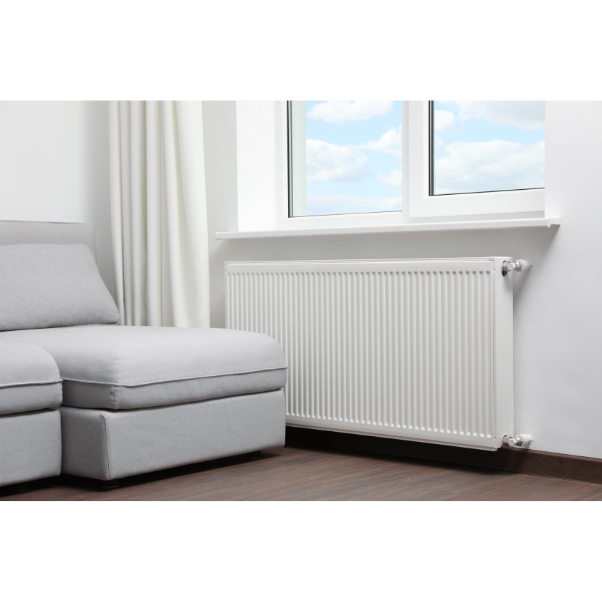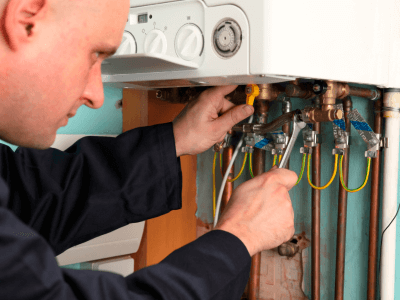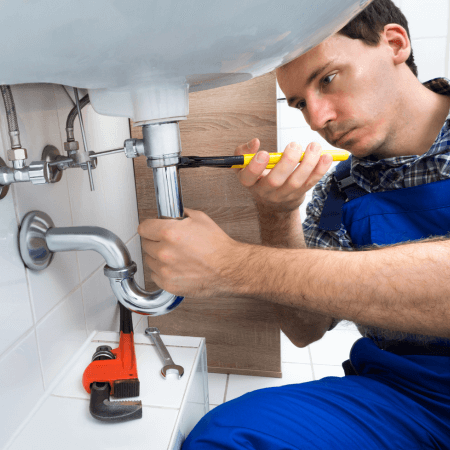Many homeowners are on the lookout for improved ways to make their lives easier and more efficient. One area where this is particularly important is in the management of their home heating systems.
With the right controls in place, homeowners can maximise their heating efficiency, save on energy bills, and ensure their homes are always at the perfect temperature.
Such demand means traders are perfectly positioned to recommend the best solutions and strategies for regulating home heating. Here, City Plumbing explores three ways traders can help customers control their home heating for maximum impact.
Why Boilers, Radiators, Heaters, and Rails Are Important in Heating Systems
Heaters and towel rails are also essential components, providing additional heating options and ensuring that homeowners can adjust the temperature in different areas of their homes. So, when it comes to maximising heating it's these systems that are key to regulating temperature.
What Can Homeowners Do to Maximise Their Heating Controls?
- Install a Programmable Thermostat
By installing a programmable thermostat, homeowners can set their heating system to turn on and off at specific times, ensuring their home is always at the desired temperature. This can help reduce energy waste and lower monthly utility expenses by avoiding unnecessary heating.
Programmable thermostats are customisable devices that allow the setting of specific temperature levels for both heating and cooling systems at different times of the day.
Programmable thermostats not only provide convenience and comfort but also help to save money in the long run by optimising heating and cooling system efficiency.

Benefits of Programmable Thermostats
- Energy Efficiency: By programming the thermostat to lower temperatures when homeowners are at work or asleep, they can reduce energy consumption and lower utility bills.
- Convenience: With programmable thermostats, the desired temperature can be set once and forgotten about. This means no more manually adjusting the thermostat multiple times a day.
- Comfort: Homeowners can enjoy a cosy home when waking up in the morning or returning from work as they don't have to wait for the temperature to adjust.
How Do Programmable Thermostats Work?
Programmable thermostats come with various settings and programs that allow the customisation of a home's temperature based on daily routines. Most models offer the following features:
- Daily Programming: Set different temperatures for different times of the day, such as mornings, afternoons, evenings, and nights.
- Weekly Programming: Create a schedule for each day of the week, allowing tailored temperature settings for both weekdays and weekends.
- Vacation Mode: Keep the home at a steady temperature when everyone is away, saving energy but ensuring the return to a comfortable environment.
- Use Smart Zoning
Zoning is a method of dividing the home into different areas, or zones, which can be heated or cooled independently. This is typically achieved by installing a series of dampers within the heating ducts, which can open and close to control airflow to different parts of the home.
Each zone is equipped with its thermostat, allowing homeowners to set individual temperatures for each area. This way, they can heat only the areas that are in use, saving energy and ensuring maximum comfort.
So, zoning reduces that battle with hot and cold spots in different rooms, and the continual adjustment of the thermostat to find the perfect temperature throughout the home.

Benefits of Zoning
1. Increased Comfort
One of the primary benefits of zoning is the ability to customise the temperature in each zone according to the specific needs of that area. For example, customers may want their living room to be warmer in the evening when they're relaxing while keeping their bedroom cooler for optimal sleeping conditions. Zoning allows them to achieve personalised comfort throughout the home.
2. Energy Efficiency
By heating only the zones that are in use, zoning can help reduce energy waste and lower utility bills. Instead of heating the entire home to the same temperature, homeowners can focus on heating the areas that are occupied, leading to significant energy savings over time. This targeted approach helps to heat a home for less and also helps maximise the efficiency of the home's heating system.
3. Reduced Wear and Tear on the HVAC System
Zoning can help reduce the strain on a customer's HVAC system. By only heating the zones that need it, homeowners can prevent their systems from overworking, thus extending their lifespan. This can result in fewer repairs and maintenance costs down the line, ultimately saving homeowners money in the long run.
4. Customised Heating Schedules
With a zoning system, customers can program individual heating schedules for each zone in their home. This means different temperatures are set for different times of the day, based on their family's routine. This level of control allows homeowners to maximise their home's heating efficiency and comfort.
- Carry Out Regular Maintenance
Regular maintenance of a heating system is crucial for several reasons. Firstly, it helps to ensure that this entire system runs and performs efficiently. When a heating system is operating at its best, it uses less energy to heat the home, which in turn helps lower utility bills. Additionally, regular maintenance can help extend the life of a heating system, saving customers money on costly repairs or replacements later down the line.
What Are Some Maintenance Tasks Homeowners Can Do Themselves?
While some maintenance tasks should be left to a professional, there are several things homeowners can do to help keep their heating system running smoothly. This includes changing the air filter regularly, keeping the area around the heating system clear of debris, and checking the thermostat to make sure it's set correctly. These simple tasks can go a long way in helping to maximise heating in a home.
When Should Homeowners Call In The Trade for Professional Maintenance?
In addition to homeowners performing regular maintenance tasks, it's essential to schedule professional maintenance for a heating system at least once a year. A professional technician will be able to perform a thorough inspection of the system, checking for any issues that may be impacting its performance. By scheduling regular maintenance, homeowners can catch problems early on and ensure that their heating system continues to operate efficiently throughout all seasons.

Ultimately, by understanding the importance of boilers, radiators, heaters, and rails in heating systems, homeowners can take steps to maximise their heating controls and improve the efficiency of their homes. With the right controls in place, your customers can enjoy a comfortable, regulated, and warm home while saving money on their energy bills long-term.
If you’re looking to help your customers maximise their heating controls, take a look at our City Plumbing website.
For further guidance on helping customers navigate the cost of living, our sought-after help and advice section offers plentiful information.
Other articles

The Benefits of an Annual Boiler Service
08 Nov 2023 ・ 5 mins

Help Customers Make The Move To Smart Living
02 Nov 2023 ・ 4 mins

Important Plumbing Regulations for Installers
19 Sep 2023 ・ 3 mins



